ANNUAL MEETING OF THE SUPERIOR GENERAL
THE MEMBERS OF THE GENERAL CONSULTA
AND THE MAJOR SUPERIORS OF THE ORDER OF CAMILLIANS
Dearest Camillian religious,
Health and peace in the Lord of our lives, projects, dreams and hopes
I welcome you all to Rome for this annual meeting of the general government with the Major Superiors of our Order.
I will recall briefly the reasons for our coming together at this meeting. Our Constitution and the General Statutes: ‘The superior general also consults the provincial superiors, vice-provincials and delegates in matters of major importance which concern the entire Order. If possible once a year and, whenever this is necessary, he shall convene the provincials, vice-provincials and delegates, whose delegations have at least twelve perpetually professed, to address various questions with the general consulta’. (…) All superiors, respecting just and legitimate differences, should be watchful that what is particular does not harm unity, but, rather, fosters it. They promote amongst the various parts of the Order fraternal communion, the exchange of pastoral experiences and activities inherent in our ministry, and material help’ (GS, 79).
Hitherto – during the six-year period 2014-2020 – two international meetings have been celebrated: in Poland (Warsaw) on 19-23 May 2015,[1] and in Burkina Faso (Ouagadougou) on 9-16 October 2016.[2]
Today we have come together for the third time, in Rome, with a work agenda that is very precise and defined substantially by the second stage of the Camillian Project: Towards a Faithful and Creative Life – Challenges and Opportunities
To remember and return to our ‘general plan of development’ for government for this six-year period (2014-2020)
Our Camillian Project: Towards a Faithful and Creative Life – Challenges and Opportunities offers the proposal of renewal and transformation organised around two levels which should be seen as two inseparable tramways: the interior (spiritual discernment, the values of consecrated life, etc.) and the exterior (organisational structures).
The implementation of this project has taken place in two stages: interior revitalisation – the first part of the three-year period 2014-2017; and organisational restructuring – the second part of the three-year period 2017-2020. Amongst the objectives of the second stage, which is a period for restructuring or reorganisation, there is that of setting in motion a process that will lead to:
- Revising the organisational structures of the Order.
- Fostering a change in mentality that will make possible and effective the cooperation that is needed between the various parts of the Order.
- Optimising the resources of the Order by unifying or centralising services, above all in the field of formation.
- Unifying, amalgamating or fusing Provinces, Vice-Provinces or Delegations; looking for new forms of leadership for the Order, etc. (cf. Camillian Project2.).
The First Part of the Camillian Project – Interior Revitalisation!
The publication ‘Being a Camillian and Samaritan Today: with your Heart in your Hands in the Existential and Geographical Fringes of the World of Health’[3] constitutes a precious synthesis of this commitment of the general government of the Order to engaging in a personal exodus, to living going outwards, and to going to meet our religious where they work and live according to the Camillian charism.
The leitmotif of this approach revolves around a historical hermeneutic key. On the occasion of the Year of Consecrated Life (2015), we were invited to remember and narrate our history but we were also provoked to recall that with the assistance of the Holy Spirit we have a great history to construct. From this point of view, we must look to the past with gratitude, live the present with passion, in order to be an instrument of communion (and for us Camillians to serve with Samaritan compassion) and embrace the future with hope!
This book entitled ‘Being a Camillian and Samaritan Today’ is the outcome of the (canonical) fraternal and pastoral visits of the Superior General and the members of the General Consulta to the various geographical areas of the Order of Camillians over the first three years (July 2014-July 2017) of the six-year period 2014-2020.
During the last Extraordinary General Chapter of our Order (LVIII, Ariccia (RM), 16-21 June 2014), almost with ‘tones of supplication’ the Superior General and General Consulta was asked to be closer to the religious, visiting them, accompanying them, and meeting them specifically where they live and carry out their ministry, above all in the outlying areas, as Pope Francis himself has recommended, in order to be an ‘outward going Church’, living the dynamic of being a ‘field hospital Church’. In Evangelii Gaudium (n. 49) Pope Francis categorically states: ‘I prefer a Church which is bruised, hurting and dirty because it has been out on the streets, rather than a Church which is unhealthy from being confined and from clinging to its own security. I do not want a Church concerned with being at the centre and which then ends by being caught up in a web of obsessions and procedures’.
This highest event of the Order, at a decision-making level, confirmed this project for the revitalisation of Camillian religious life, and identified three priorities (defined as urgent requirements or emergencies) as well.
- Financial administration: greater transparency and organisation starting with the generalate house; revival of the central economic commission; and supervision of the accounts and activities of the religious Provinces that have economic and financial difficulties.
- Initial and ongoing formation – with a commitment to the promotion of vocations – as a pre-condition for our very future.
- Communication understood as a pre-condition for constructing fraternity and community life. As I have repeated many times during our meetings, ‘the only communication that functions very well with us is announcing the deaths of our confreres!’ It still seems to me that communication is not to be found very much in our Camillian DNA! We must, without doubt, learn to communicate our experiences of life in a much better way as well!
The Camillian Project belongs to a basic ecclesial context that is characterised by three great events: the election of Pope Francis (13.3.2013); the Year of Consecrated Life (2015); and the Extraordinary Jubilee of Mercy (2015/2016).
Some statistical data about these journeys and canonical and pastoral visits. The overall number of days dedicated to this ministry during these last three years (2014-2017) is the following: out of 1,095 days (3 years = 36 x 3), 522 were for this ministry of meeting Camillian religious during pastoral visits, and they amount to almost a year and a half spent in 71 journeys, of which 50 were abroad and 21 in Italy.
The Annual Meeting of the Superior General, the Members of the General Consulta and the Major Superiors (Rome, 23 June-1 July 2017).
At these meetings, which by now are a ‘tradition’ amongst us Camillians, a style of governance and leadership of a collegial character is sought. This year we will seek to respond to this specific need for formation: how should one ‘be’ a Provincial Superior, a Vice-Provincial Superior or a Delegate?
We have before us the reality that we have to address some important challenges at the level of organisation and strategy as regards our Camillian geography, principally in Europe. But before engaging in the necessary organisational changes, we must: 1) grow in fraternal openness in authentic awareness that we are one religious family. Beyond the structural changes that have to be implemented, the essence of our being and acting as Camillians remains the same; 2) maintain a respectful openness in our hearts to the other that seeks to construct unity in the awareness that first of all we are Camillians who are members of the Order of Camillians and then members of a specific Province, Vice-Province or Delegation. To attempt to create forms of unity through a ‘canonical’ imposition without first having sensitised our hearts to unity would be a useless initiative and would only bring further suffering.
THE CENTRAL TOPIC
Relaunching the Camillian Project: Towards a Faithful and Creative Life –Challenges and Opportunities. Which Programme for the Order of Camillians for the Six-Year Period 2014-2020? (the second third-year period of 2017- 2020).
OBJECTIVES
a) To discern new horizons for the priorities of the Camillian Project for the period 2017-2020, taking into account the ecclesial context and the contributions (reflections) that emerged during the recent General Chapters/assemblies of the Provinces, Vice-Province and Delegations.
b) To offer to the new Major Superiors of the Order an opportunity to reflect upon the human, spiritual and pastoral meaning of service to our religious, in addition to pointing out practical directions and guidelines about secretarial activities (documentation, annual reports, pastoral visits, documents on the religious who enter the Order or leave the Order, publications etc.).
c) To guide Major Superiors in relation to situations of paedophilia, alcoholism and other kinds of addiction: what should be done at the level of prevention and treatment? What are the approaches of the Church and of Canon Law?
d) To learn, as pilgrims as well, to celebrate the history of the places connected with the conversion of St. Camillus in Manfredonia and San Giovanni Rotondo.
e) To foster knowing each other, fraternity, and the exchange of experiences between confirmed and new Major Superiors regarding the ministry of leadership in our Order.
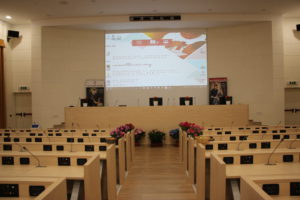 The Challenge of being the ‘Leader’ of a New Culture of Organisation with the Overcoming of Certain Temptations!
The Challenge of being the ‘Leader’ of a New Culture of Organisation with the Overcoming of Certain Temptations!
Pope Francis, during his recent visit to Egypt (Cairo, 29 April 2017), when speaking to priests, men religious, women religious and seminarians, listed a number of challenges that Christians and religious have before their eyes.[4] I believe that it is fruitful to listen to him when he says that there exist ‘many reasons to be discouraged, amid many prophets of destruction and condemnation, and so many negative and despairing voices’ but ‘may you be a positive force, salt and light for this society. Like the engine of a train, may you be the driving force leading all towards their destination. May you be sowers of hope, builders of bridges and agents of dialogue and harmony. This will be possible if consecrated men and women do not give in to the temptations they daily encounter along their way… the earliest monks of Egypt described well these temptations’. Here Pope Francis speaks about ‘temptations’, but in a famous speech to his closest co-workers of the Roman Curia on the occasion of the giving of Christmas greetings, which had a great resonance in the mass media, Francis spoke about ‘diseases’ that have to be combated.[5]
I will now list the temptations in relation to which we should exercise our prudence.
- a. The temptation to let ourselves be led, rather than to lead. The Good Shepherd has the responsibility of guiding the sheep (cf. Jn 10:3-4), of bringing them to fresh pastures and springs of flowing water (cf. Ps 23). He cannot let himself be dragged down by disappointment and pessimism: “What can I do?” He is always full of initiative and creativity, like a spring that flows even in the midst of drought. He always shares the caress of consolation even when he is broken-hearted. He is a father when his children show him gratitude, but especially when they prove ungrateful (cf. Lk 15:11-32). Our faithfulness to the Lord must never depend on human gratitude: “Your Father who sees in secret will reward you” (Mt 6:4, 6, 18).
- b. The temptation to complain constantly. It is easy to always complain about others, about the shortcomings of superiors, about the state of the Church and society, about the lack of possibilities… But consecrated persons, through the Holy Spirit’s anointing, are those who turn every obstacle into an opportunity, and not every difficulty into an excuse! The person who is always complaining is really someone who doesn’t want to work. It was for this reason that the Lord said to the pastors: “Lift your drooping hands and strengthen your weak knees” (Heb 12:12; cf. Is 35:3).
- c. The temptation to gossip and envy. And this is terrible! It is a great danger when consecrated persons, instead of helping the little ones to grow and to rejoice in the successes of their brothers and sisters, allow themselves to be dominated by envy and to hurt others through gossip. When, instead of striving to grow, they start to destroy those who are growing; instead of following their good example, they judge them and belittle their value. Envy is a cancer that destroys the body in no time: “If a kingdom is divided against itself, that kingdom cannot stand. And if a house is divided against itself, that house will not be able to stand” (Mk 3:24-25). In fact – and do not forget this – “through the devil’s envy death entered the world” (Wis 2:24). Gossip is its means and its weapon.
- d. The temptation to compare ourselves to others. Enrichment is found in the diversity and uniqueness of each one of us. Comparing ourselves with those better off often leads to grudges; comparing ourselves with those worse off often leads to pride and laziness. Those who are always comparing themselves with others end up paralyzed. May we learn from Saints Peter and Paul to experience the diversity of qualities, charisms and opinions through willingness to listen and docility to the Holy Spirit.
- e. The temptation to become like Pharaoh – we are in Egypt! – that is, to harden our hearts and close them off to the Lord and our brothers and sisters. Here the temptation is to think that we are better than others, and to lord it over them out of pride; to presume to be served rather than to serve. It is a temptation that, from the very beginning, was present among the disciples, who – as the Gospel tells us – on the way argued with one another about which of them was the greatest (cf. Mk 9:34). The antidote to this poison is: “If anyone would be first, he must be last of all and servant of all” (Mk 9:35).
- f. The temptation to individualism. As a well-known Egyptian saying goes: “Me, and after me, the flood!” This is the temptation of selfish people: along the way, they lose sight of the goal and, rather than think of others, they are unashamed to think only of themselves, or even worse, to justify themselves. The Church is the community of the faithful, the Body of Christ, where the salvation of one member is linked to the holiness of all (cf. 1Cor 12:12-27; Lumen Gentium, 7). An individualist is a cause of scandal and of conflict.
- g. The temptation to keep walking without direction or destination. Consecrated men and women can lose their identity and begin to be “neither fish nor fowl”. They can live with a heart between God and worldliness. They can forget their first love (cf. Rev 2:4). Indeed, when they lose clear and solid identity, consecrated men and women end up walking aimlessly; instead of leading others, they scatter them. Your identity as sons and daughters of the Church is to be Copts – rooted in your noble and ancient origins – and to be Catholics – part of the one and universal Church: like a tree that, the more deeply rooted it is in the earth, the higher it reaches to the heavens!
- We are all Called to be ‘Craftsmen of Hope’ in the Construction of a Future of Life for Everyone
There is another valuable recommendation of Pope Francis for us as we try to be signs of hope for a new mentality and a new culture of organisation. The Pope repeated innumerable times in the context of the Year of Consecrated Life (2015) that work involving formation should not be action of a police kind. It should be done, instead, as the work of a craftsman. We want to be the ‘craftsmen’ of a new culture of organisation within our Camillian communities and institutions in the world.
On his journey back to Rome after his visit to Fatima in Portugal, when answering the question of a reporter on his imminent visit to the President of the United States of America, Donald Trump, in America, he expressed himself in the following way: ‘I never make a judgment about people without hearing them first. It is something I feel I should not do…There are always doors that are not closed. We have to find doors that are at least a little open, in order to go in and speak about things we have in common and go forward. Step by step. Peace is something crafted: it is made daily. So too with friendship between people, mutual knowledge. Esteem is crafted; it is worked on each day. Respect for the other, saying what we think, but with respect, walking together, being very sincere’… Someone sees things in a certain way: say so, be honest in what each of us thinks’ (our detachment).[6]
Lastly, we are living through a historic moment, in a complex world, which is rich in opportunities but which is also very difficult to understand, with many challenges that have to be addressed. Without a horizon of hope when we look to the future we will easily become pessimistic, with narratives that are overly apocalyptic. There is the risk that a vision will be established according to which in front of us we will encounter a scenario of chaotic destruction (dystopia). A general fear of the future exists that is strengthening a tendency towards retrotopia, Zigmunt Bauman observed in his last book which was published a few days before his death at the age of 91 (19 January 2017). The future (u-topia) has been transformed into a threat to the lives of everyone (for example the ecological crisis) and in this way we try to survive by returning to the safety of the past (retrotopia).[7]
Some time ago we lost our faith in the idea that human beings could achieve human happiness in a future ideal state – a state that Thomas More described in his classic work Utopia which in the year 2016 could look back on five centuries of existence – connected with a ‘topos’, a fixed place, a land, an island, a sovereign state under a wise and benevolent sovereign. But although we have lost trust in a utopia of all tonalities, the aspiration that created this possibility has not died. It is re-emerging today as a vision that is not focused on the future but on the past; not on a future that has to be created but on a past that has been abandoned but is not yet dead, and which we could call retrotopia.
Bauman engages in an important analysis of this concept of nostalgia starting with the thought of Svetlena Boym, a lecturer in Slav literature and comparative studies at the University of Harvard.[8] Boym defines nostalgia as a ‘feeling of loss and removal, but it is also an imaginative novel’ (p. xiii). Whereas during the seventeenth century nostalgia was seen as a treatable illness, which, for example, Swiss physicians suggested be cured with opium, leeches or a trip to the mountains, in the twenty-first century this illness has been transformed into an incurable condition.
The twentieth century commenced with futuristic utopia and ended with nostalgia (p. xiv). Boym ends her diagnosis of our days by observing that in the global epidemic of nostalgia there exists a profound wish for a community with a collective memory, a wish for continuity in a fragmented world (our detachments) and she sees this epidemic as a ‘defence mechanism in a time of accelerated rhythms of life and historic upheavals’ (ibidem). This defence mechanism essentially involves the ‘promise to rebuild the ideal home that is at the centre of many of today’s powerful ideologies. We are tempted to abandon critical thought for emotive delimitation’ (p. xvi). Lastly, she offers a suggestion about where to look for such dangers with a likelihood of finding them: in the great variety of nostalgias of ‘restoration’. Here we encounter one of the characteristics of the rebirth of national and nationalist movements throughout the world which are committed to the realisation of the anti-modern myth of history, of a return to national symbols and myths and, occasionally, through a re-presentation of conspiracy theories’ (p. 41).
In the epilogue to this publication, Bauman invites humanity to look forward to achieve change, hoping in a better future in which ‘we must brace ourselves for a long period marked by more questions than answers, problems than solutions, as though we were acting in a balanced way in the shadows, in front of a small possibility of success or even of defeat. But in this case…the verdict ‘there is no alternative’ will get worse without any possibility of redress. More than at any other moment, we – the human beings of the earth – are in the following situation: either we address things together united with outstretched hands or we will have the same graves’.
We have the challenge of redeeming in this historical context the ‘utopia of the kingdom of God’ which must be central in our faith and our ministry. What is the purpose of utopia? The writer and Uruguayan journalist Eduardo Galeano says that: ‘utopia lies on the horizon. I take two steps, and the horizon is two steps further away. I walk ten steps and the horizon also moves ten steps. However much I walk, it is impossible to draw near to it and to be with it. What is the purpose of utopia? This is its purpose: I should never stop walking’.
What Can we Expect from the Future Given that Many People Doubt, and Ask Themselves, Whether there will be a Future?
We can associate the thought of Edgar Morin with the analysis of Zygmunt Bauman. Both of these thinkers are keen critics of what is happening to the men of our modern and contemporary epoch and they offer us some interesting points for reflection about the future of humanity.
Edgar Morin, a famous French thinker and educator, when speaking about human life tells us that our lives are woven with ‘prose and poetry’, as though they were two sides of the same coin, ‘We need to reconfigure our lives because they are condemned to be a chronometric and monotonous existence’. Our lives need greater autonomy and a greater experience of community. He observes that Zygmunt Bauman stated that the development of the individual needs a communal context to be able to take place. We cannot grow in a closed, egocentric and selfish way.
We need these two things which seem only apparently to be in opposition and which are necessary: we need greater autonomy and greater community. We can describe life as an experience polarised, on the one hand, by a pole that we can call ‘prose’, and, on the other, by a pole called ‘poetry’. What is the life of prose? It constitutes what we are obliged to do, what irritates us, what makes us sad, what we are forced to carry out. But we do it in order to have an income to live. We have conquered our lives only to lose them; that is to say we have adopted this lifestyle in order to survive. The prose of life is what enables us to survive. Differently, the poetry of life is what we achieve for our growth: it is everything that makes us live in a full sense, with strong participation. The poetry of life lies in love, in communion, in enjoyment, in dance, in ecstasy, in celebration: this is the poetry of life.
In the opinion of Zygmunt Bauman, we are walking towards retrotopia and he adds that today we are experiencing the troubling and worrying phenomenon of the privatisation of utopias. We are witness an absence of utopias and this is said to be the cause of the crisis that we are going through today in Western society. But there also exists a situation in which utopias exist, but only for the few, and they have been privatised.
Until half a century ago, utopia referred to a perfect society in which every person could have a steady job, and everyone, more or less, could be assured a serene and dignified existence. To have a good life meant living in a good society, because of it and thanks to it. Today this utopia no longer exists – it is over!
This utopia no longer exists because utopia has been privatised, like very many other things. Privatised utopia no longer involves features for a better society – it concerns only the best individuals of society, each one understood in his or her individual condition, and belonging to a very aggressive society.
With respect to society, they say that it cannot change and any possible change is presented as something that is impossible. In this scenario, what an individual person can do is to take care of himself or herself, his or her loved ones, family, spouse. One is dealing with finding a comfortable place in a world that in fundamental terms is not welcoming and is in a state of malaise. As an example of this situation, Bauman offers the advent of Facebook. In it, a person can create and live in an imaginary world, on-line, but a world that in reality is off-line. In it a person can take on various identities (being whatever they want to be), can pretend to be something or someone that they are not; one can give free reign to all one’s dreams. Clearly, this is a way of fleeing from the severe needs and difficulties of the off-line world.
When thinking about the future of humanity, Bauman states that he is not pessimistic. He uses the image of an ancient oak tree that has grown from a simple little plant to explain his vision. All the greatest events of history have had a very small and humble beginning. If such were not the case, we would still be in the Palaeolithic age and we would live in caves. Those who decided to leave their caves, at the beginning, were a small minority. Bauman ends by saying that ‘sooner or later, human beings will find the solution, change their habits, change themselves and begin to live in a different way. I am almost certain of this, but the problem that worries me is the time that will be needed for this to take place’ (my underlining).
I will end my thoughts by observing that perhaps never before has the Hope of Christ become so necessary, but we must be careful to ensure that nobody steals it from us! We need to introduce into our DNA a good dose of utopian spirit, where utopia is not understood as ‘nowhere’, something that has never existed and will never exist, but as an ‘eu-topia’, that is to say a place of happiness, wisely embracing the prose and the poetry of life (Edgard Morin); valuing ourselves as people who live in a community, understood as a setting of belonging and of growth in a fragmented world. When will this come about? We do not know, but as Bauman suggests we need patience, to ‘hope with hope’…in the same way that a great oak born of a little plant becomes a leafy oak. Let us therefore tarry in front of a centuries-old oak tree and, in silence, let us behold it!
Dearest confreres, we have an important lesson to learn from this ‘utopian’ approach: we should never stop walking towards the horizon of light, a symbolic expression of the Kingdom promised by the Lord. Let us walk together and united, being vigilant to ensure that our hope and the joy of living and serving the Lord as true Samaritans are never stolen from us.
I hope that this meeting will be a fine, rich and joyous experience of personal growth and fraternity, of implementation, of spiritual discernment about the concrete organisation of our Camillian lives; of rebirth in living faith and hope in Christ ‘who is the merciful face of the Father’; and of falling in love again with our Camillian charism.
May St. Camillus, our founder father, always be our inspiration, and may Our Lady of Health, with him, intercede for us to achieve our integral (physical, mental, social, affective and spiritual) health so that we can carry out our mission with human and spiritual wisdom, living at the service of the sickest and most in need, and may St. Camillus and Our Lady of Health support us in leadership as ‘true craftsmen of a new culture’ of the rationalisation and reorganisation of our internal and external structures, structures of community, of formation, and of ministry, in the field of health!
May your deliberations be fruitful!
Rome, 23 June 2017
Fr. Leocir PESSINI, MI
Superior General
[1] Cf. Camilliani/Camillians, Initial Greetings of the Superior General. Warsaw18-23 May 2015, p. 4-9 (Italian), pp.10-15 (English); Summary of the Days of the Meeting, pp.16-23 (Italian); pp. 24-31 (English); n. 200, year XXIX, 2/2015, April-June 2015, pp. 4-31.
[2] Cf. Camilliani/Camillians, Meetings of the Superior General, the Members of the General Consulta and the Major Superiors of the Order. Fiftieth Anniversary of the Presence of the Camillians in Burkina Faso; n. 205-206, year XXX, 3-4/2016, July-December 2016, pp.v124 -143 (Italian), pp.v144-155 (English).
[3] L. PESSSINI, L. ZOUNGRANA, J.I. SANTAOLALLA SAEZ, A. MIRANDA, and G. LUNARDON G, Being a Camillian and Samaritan Today: with your Heart in your Hands in the Existential and Geographical Fringes of the World of Health (Ministers of the Sick– Camillians, Generalate House, Rome, 2017).
[4] Pope Francis, ‘Address at the Meeting and Prayer with Priests, Religious and Seminarians’, Cairo, Patriarchal Seminary in Maadi, Saturday, 29 April 2017: cf. www.vatican.va.
[5] The fifteen diseases identified by Pope Francis (in his speech to the members of the Roman Curia of 21 December 2014) are the following: the disease 1) of feeling ‘immortal’, ‘indispensable’; 2) of the ‘Martha complex’ (which comes from Martha), of excessive business; 3) of mental and spiritual ‘petrification’: that is to say of those who have a heart of stone and are ‘stiff-necked’ and become paper pushers; 4) of excessive planning and functionalism, becoming an accountant or office manager; 5) of poor coordination: once its limbs lose communion among themselves, the body loses its harmonious functioning; 6) of ‘spiritual Alzheimer’s’: losing the memory of our personal history of salvation, our personal history with the Lord, our ‘first love’; 7) of rivalry and vainglory: when appearances, the colour of our clothes and our titles of honour become the primary objective in life; 8) of existential schizophrenia. This is the disease of those who live a double life, the fruit of that hypocrisy typical of the mediocre and of progressive spiritual emptiness which no degree or academic qualification can fill; 9) of gossiping, grumbling and back-biting. This is a grave illness, the person becomes a sower of weeds (like Satan) and in many cases a ‘cold-blooded killer’ of the good name of our colleagues and confreres; 10) of idolising superiors. This is the disease of those who court their superiors in the hope of gaining their favour; 11) of indifference to others. This is where each individual thinks only of himself and loses sincerity and the warmth of human relationships; 12) of the lugubrious face, that is to say glum and dour persons who think that to be serious we have to put on a face of melancholy and severity; 13) of hoarding: when an apostle tries to fill an existential void in his heart by accumulating material goods, not out of need but only to feel secure: 14) of closed circles, where belonging to a clique becomes more powerful than belonging to the Body and in some circumstances to Christ himself; 15) of worldly profit, of forms of self-exhibitionism when an apostle turns his service into power, and his power into a commodity in order to gain worldly profit or even greater power’ (cf. www.vatican.va).
[6] POPE FrancIS, ‘Press conference of the Holy Father during the return flight from Fatima’, Saturday 13 May 2017.
[7] Bauman Zigmunt, Retrotopia (Polity Press, 2017). Bauman as early as the introduction to his work describes the fascination worked by the past and states that today we are living in a ‘season of nostalgia’. A retrotopia, faithful to the utopian spirit, finds its stimulus in the hope of finally reconciling safety with freedom which both the original vision and the first denial was not able to experience or not experience.
[8] Boym Svetlana, The Future of Nostalgia (Basic Books, 2001).



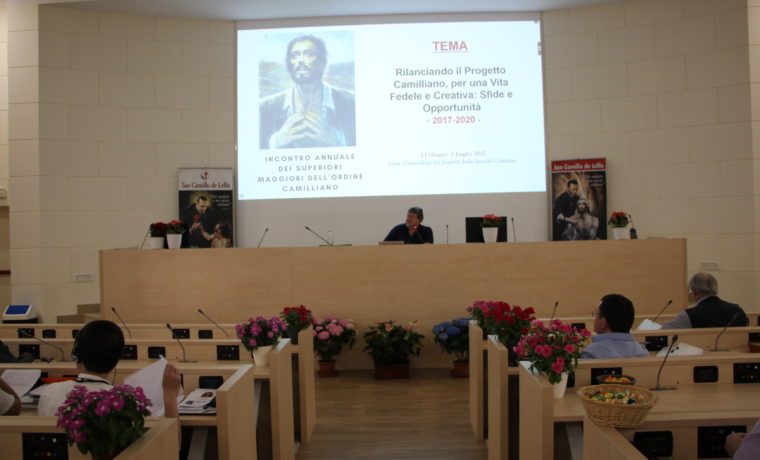
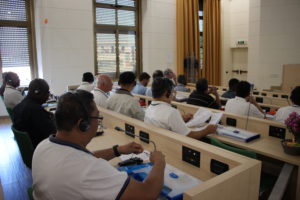

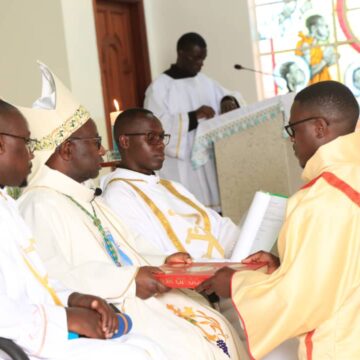

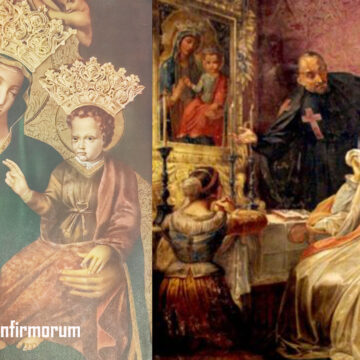

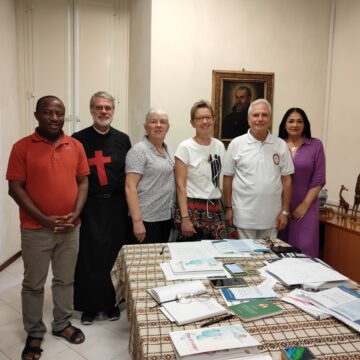

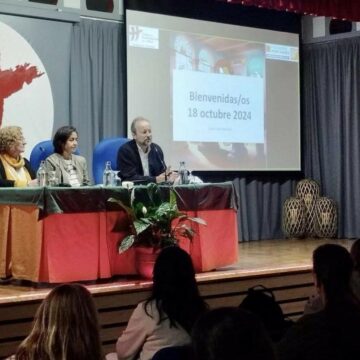
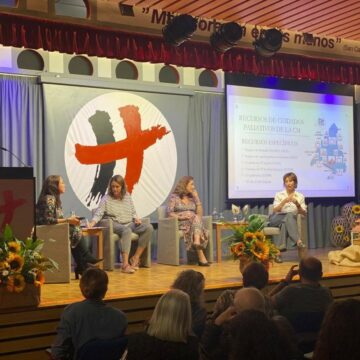
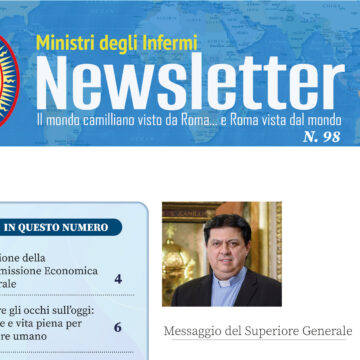
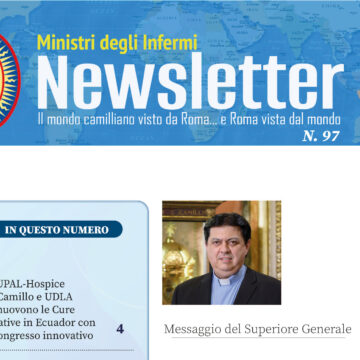
Camillians on Facebook
Camillians on Twitter
Camillians on Instagram